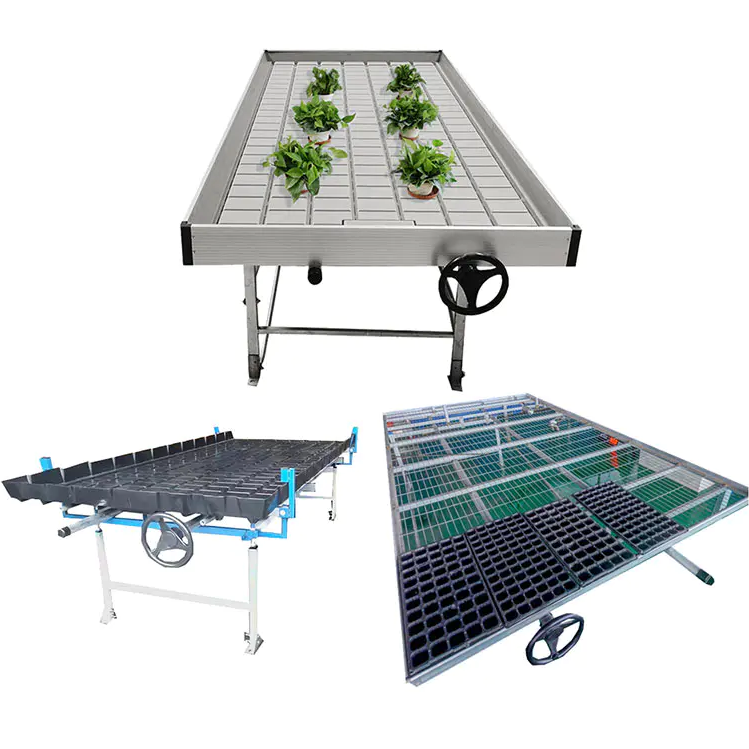The development of rolling benches in agriculture is just beginning

As agricultural technology continues to evolve, tools that enhance productivity and streamline operations are becoming more sophisticated. Among these innovations is the rolling bench, which has been steadily gaining traction for its efficiency and versatility. The future of rolling benches in agriculture looks promising, with advancements poised to further improve their functionality.
One of the most exciting trends in rolling bench technology is the potential for automation. Future rolling benches may be equipped with automated systems for watering, lighting, and even planting. Automated irrigation systems could be incorporated into the bench design, ensuring consistent water distribution and reducing labor. Furthermore, some models may include sensors that track plant growth, optimizing the growing conditions for different crops.
In response to the growing demand for sustainable farming practices, the materials used to construct rolling benches are likely to become more eco-friendly. Manufacturers are already exploring biodegradable or recyclable materials to create benches that reduce environmental impact. Additionally, innovations in materials could make benches lighter, stronger, and even more resistant to corrosion, increasing their lifespan and reducing the need for frequent replacements.
Vertical farming is becoming an increasingly popular method for growing crops in urban areas. As this farming practice gains momentum, rolling benches will likely evolve to accommodate vertical growing systems. These benches could incorporate multiple layers, allowing crops to be grown on several levels. This would further maximize space and yield while reducing the footprint of the farming operation.
As farmers’ needs become more diverse, rolling benches will likely be designed with greater customization options. Growers could choose benches with adjustable widths, lengths, and height configurations to suit specific crop types or growing techniques. Enhanced mobility options, such as motorized wheels, could also become standard, allowing for even easier repositioning of the benches in large-scale operations.
In conclusion, the development of rolling benches in agriculture is just beginning. With advancements in automation, sustainability, vertical farming, and user customization, the future of these essential tools looks bright. By continuing to evolve, rolling benches will play an even more significant role in helping farmers increase productivity while minimizing environmental impact.
- Art
- Causes
- Crafts
- Dance
- Drinks
- Film
- Fitness
- Food
- Παιχνίδια
- Gardening
- Health
- Κεντρική Σελίδα
- Literature
- Music
- Networking
- άλλο
- Party
- Religion
- Shopping
- Sports
- Theater
- Wellness



